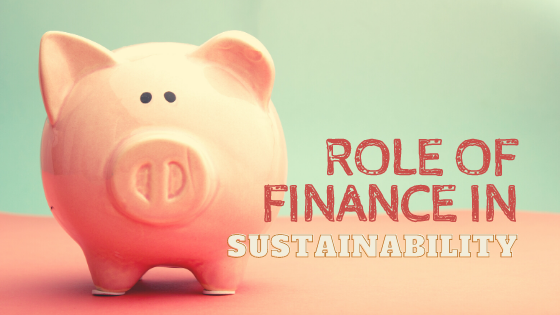By May Perez, AEV Sustainability Manager
The article “The key to making your company greener? A strong finance team” published in FORTUNE magazine makes a compelling case about the need for synergistic leadership in companies as the investment community demands greater transparency and accountability on a broad range of issues. It points to collaboration between the finance teams and the CEO as key driver towards an effective approach to environmental, social, and governance (ESG) factors relevant to their business. Following are our insights on the salient points discussed in the article.
“There has been a steep change in the U.S. sustainability landscape over recent years, which is expected to accelerate as we emerge from COVID-19 in the coming months and years. Company leaders increasingly recognize the competitive imperative to take action. ING’s 2019 survey of U.S. executives found that 45% are now strongly influenced by sustainability when setting business growth strategy, up from 29% in 2018.”
In the Philippines, the change in the sustainability landscape was brought about by mandatory reporting set by Securities and Exchange Commission for all publicly listed companies. The acceleration due to COVID-19 is still a question being determined at the boardrooms all around the world with consideration for sustainability maturity of countries in emerging markets (such as the Philippines) while the west has already a headstart in terms of setting up standards in their own context. The good news is business leaders are increasingly recognizing the competitive imperative to take action on ESG.
“There is no one-size-fits-all solution for sustainable transformation, but it is clear that to achieve the best results it needs to be embedded across every corner of the company. Commitment from the CEO, of course, is critical. But the finance team, with its roles in forecasting and planning to ensure growth, risk management, capital planning, investor relations, and budgeting, is vital to a successful outcome. Together, the CEO and the finance function are critical in aligning sustainability objectives up and down the company.”
Indeed, there is no “universal remote” to sustainable transformation. The Aboitiz Group’s sustainability journey is as unique an experience as it is to all others who have gotten started. We have made sure to carefully consider various benchmarks and best practices with which to align along the way. It has also been made clear to our leaders that sustainability should be integrated well in all CSUs and SBUs. We believe in our finance team (headed by AEV CFO Dmi Lozano) who are our champions in supporting the Aboitiz sustainability agenda.
“Sustainable financing transactions continue to grow, both globally and in the U.S., driven by the introduction and availability of more product types in the market.
As the range of sustainable finance products expands, there are more opportunities for finance professionals to align their company’s funding with its sustainability objectives. Whether they are following the Green Bond Principles, or setting loan terms based upon sustainability performance targets, sustainable finance instruments can provide a very visible means of holding the business accountable for its progress on sustainable transformation.”
In the country, the introduction of the Sustainable Finance Framework compliance of the banking industry paves the way to establishing growth in sustainable financing and enables companies to improve its practices since this shall be precursors to compliance terms with lending institutions. This is also recognized as a business development opportunity to consider ESG criterions in our investment decisions.
“‘What gets measured gets done.’ One of the strengths of finance professionals is that they like to measure organizational performance in a quantitative manner—a valuable attribute in the context of sustainable transformation.”
Our finance team is currently collaborating with the sustainability team in terms of financial material topic and quantification of various environmental metrics in terms of revenue. One example of this, in our recent RobecoSam exercise, we were able to measure coverage of emission performance compared to the consolidated revenues. The trend also in sustainability reporting is gearing towards Impact Valuation, which is actually discussed in financial values.
“Using green finance can help reinforce a company’s sustainable transformation because it usually involves publicly stating a set of green objectives for the funding.”
Lastly, communicating the company’s sustainability story is highly appreciated by investors today as it also provides insights on heavier risk exposures and green financing opportunities. The investment community is becoming even more scrutinizing of companies’ performance on ESG. This is also increasingly becoming demand-driven by other stakeholders (community and customers), for example, consumers boycotting brands that are neglecting their ESG responsibilities.
The Aboitiz Group recognizes the imperative to take meaningful action on sustainability concerns in the light of emerging global complex problems such as the COVID 19 pandemic. We continue to dedicate a substantial amount of resources to measure and address our impacts, robustly seek solutions to minimize them, and provide clear and transparent communication to our stakeholders. We do this as #OneAboitiz through effective team collaborations in ensuring that sustainability is well integrated in our organizations’ culture and processes.
– Ginggay Hontiveros, VP Reputation Management, AEV


